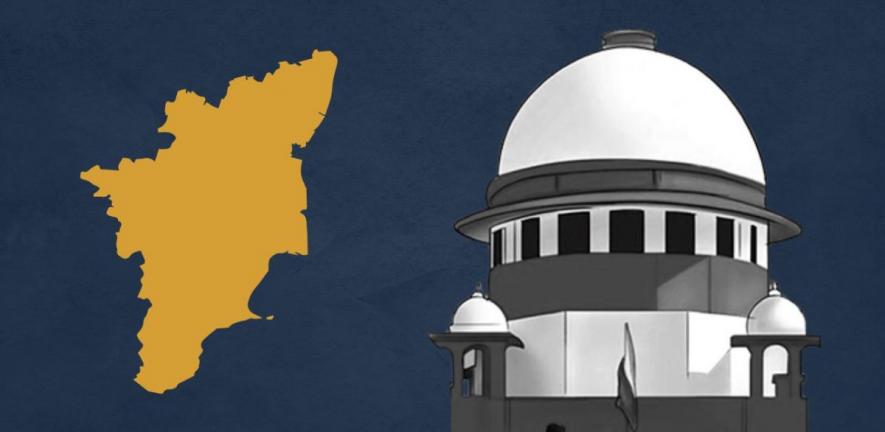Tamil Nadu Government Approaches Supreme Court Alleging Obdurate Governorship

The state joins other non-Bharatiya Janata Party-ruled states Punjab and Telangana in bringing their grievances against the governor to the Supreme Court.
—
The Tamil Nadu government has knocked on the door of the Supreme Court against the governor for not giving his assent to multiple Bills passed by the Tamil Nadu state legislature.
The state government has provided a list of as many as 12 Bills that are pending with the governor for his clearance. The oldest of them was passed by the state assembly in 2020.
Under Articles 200 and 163 of the Constitution, when a Bill is forwarded to the governor for his assent, he is required to either:
(a) Accord his assent to the Bill
(b) Withhold the assent
(c) Reserve the Bill for the consideration of the President
(d) Return the Bill to the Legislature for reconsideration.
The state government has contended that these options are exercised by the governor in his discretion only on the aid and advice of the council of ministers with the chief minister as its head.
“The governor is not exercising the option among the four choices conferred upon him in the constitutional scheme but is abusing the position of ‘ceremonial head’ by exercising a fifth option, i.e., ‘sitting on the Bills indefinitely’ which is not envisaged in the constitutional scheme,” the state government has submitted before the court.
“He is thereby undermining the ‘will of the people’ and detrimentally incapacitating the elected ‘executive’ and ‘legislature’ of the state of Tamil Nadu,” the state government has contended further.
The state government alleges that governor R.N. Ravi has positioned himself as a political rival to the legitimately elected government by hindering and obstructing the legislative assembly’s ability to carry out its legislative duties by unjustly and excessively delaying the consideration of bills that the assembly has passed.
The state government also raised the issue of the pending applications with the governor regarding the appointment of the chairman and members of the Tamil Nadu Public Service Commission (TNPSC).
“As per Regulation 3 of the Tamil Nadu Public Service Commission Regulations (TNPSC), 1954, the commission shall consist of a chairman and 14 members but despite the Rule, the TNPSC is functioning with a mere strength of four members, in which one of the members is holding an additional charge of chairman, TNPSC,” the state government contends.
The petition also invites the attention of the court to the action of the governor on the remission files of 54 convicts.
“The governor, by not signing remission Orders, day-to-day files, appointment Orders, approving recruitment Orders, granting approval to prosecute ministers, MLAs allegedly involved in corruption including transfer of investigation to the Central Bureau of Investigation (CBI) by the Supreme Court, and Bills passed by Tamil Nadu Legislative Assembly is bringing the entire administration to a grinding halt and creating adversarial attitude by not cooperating with the state administration,” the state government argues.
Earlier this year, the Telangana government had approached the Supreme Court alleging inordinate delay on the part of governor Tamilisai Soundararajan in giving her assent to Bills passed by the two houses of the state legislative assembly. The court had issued notice to the Union government calling for its response.
The Punjab government has also approached the Supreme Court challenging the delay by the governor in giving assent to Bills passed by the state assembly.
Pertinently, all three states are ruled by parties not part of the Bharatiya Janata Party-led National Democratic Alliance.
Get the latest reports & analysis with people's perspective on Protests, movements & deep analytical videos, discussions of the current affairs in your Telegram app. Subscribe to NewsClick's Telegram channel & get Real-Time updates on stories, as they get published on our website.
























